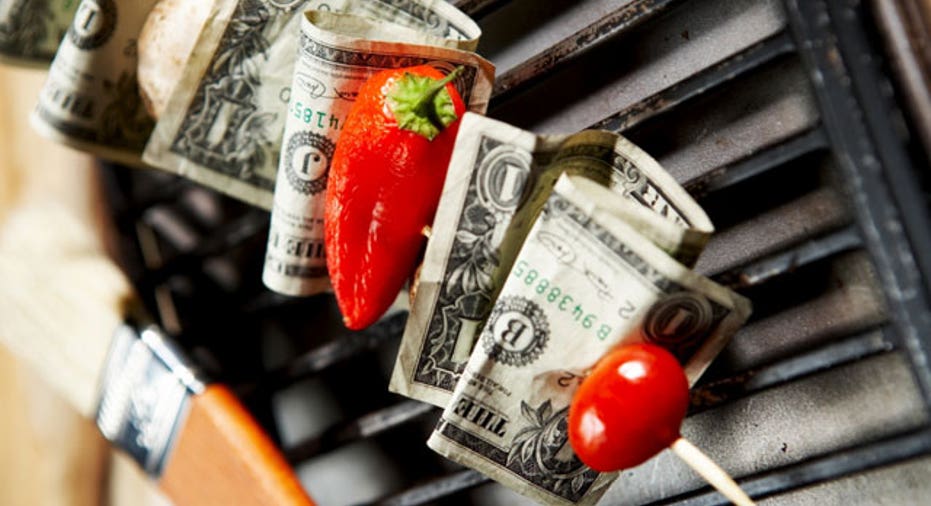Inflation is Coming; Here's How it Will Hurt

Dear New Frugal You,
I've been reading the business press and watched Ben Bernanke's press conference and now I'm growing concerned about inflation. Would you please address what increased inflation will mean to me and the American people with respect to decreased buying power, savings and debt? Some of it is common sense, but some is complicated. It would be nice to have the perspective of a professional financial planner. Thanks
- Leona in Spokane
Dear Leona,
You're right. There are sufficient reasons to be concerned with inflation. After all, Mr. Bernanke is the head of the Federal Reserve Board, which controls the nation's money supply.
They've also been doing something called "Quantitative Easing" or QE. That's a fancy way of saying that the government is printing more money. We won't get deeply into the economic weeds, but in simple terms, to keep prices stable the amount of money needs to grow by roughly the same amount that the economy grows. If the money supply grows faster, inflation will result. So printing extra money can cause inflation.
How do you measure inflation? There are various measures, and each tells a different story. According to the Bureau of Labor Statistics for the 12 months ending April 2011, the Consumer Price Index for all items (except food and energy) wen tup 1.3%. Fairly low. But the food index increased 3.2% and energy was up 19.0%!
So let's examine inflation and what you should do now to protect yourself.
First, recognize that you cannot control inflation, but you can adjust to it. If the price of bread goes up, you can't force it back down.But you can change to a less expensive brand, eat less bread or make your own at home.
Next, realize how serious inflation can be. Most of us don't pay attention to everyday prices. We know that a loaf of bread costs a few cents more than last year, but it just doesn't seem that significant. But if you consider a longer time frame, it is.
For instance, if inflation is 4% per year, prices will double in 18 years. That may seem like a long time, but today's average18-year-old will live to see prices go up eight times during his or her expected lifetime.
So inflation can devastate your financial foundation. Not only can it eat up any money you've saved, but it will also affect how your investments perform.
Inflation is the enemy of your savings. Money saved is only valuable for what it can purchase. Since inflation erodes purchasing power, its lowly devalues your savings. This becomes very apparent when you consider that a loaf of bread cost $1 as recently as 2003.
Normally safe choices such as certificates of deposit and money markets are no longer risk free. It's true that you won't lose your principal, but that principal will purchase less each year. It's like being robbed in slow motion!
Inflation not only means higher prices, but it also means higher interest rates. Lenders aren't stupid. If you lived through the late'70s, you'll remember mortgage rates that were in the low teens. That's because lenders need to earn 3% or 4% above the inflation rate, which was then in double-digit territory.
It's also important to recognize that you can benefit from inflation. Any gold coins you have in your safe box are worth more today. Even after the recent drop, most real estate is worth more than it was 15 years ago.So if you're sitting on an oil well or a parcel of land, you're happy to see some inflation.
Inflation can also be good for people who owe money -- at least for debtors who have agreed to repay a fixed amount. They get to repay loans with dollars that are worth less than the ones that they borrowed. That's one reason why governments like inflation.
So Leona, knowing all that, if you expect inflation, there are some things that you'll want to do now.
*If you haven't already, move some of the money you've saved into investments that will go up with inflation. Typically those are hard assets -- things such as gold, silver, oil, gas and real estate. Get professional advice on how much to shift and what investments will best protect you.
*Repay any variable rate loans. Expect the rates on credit cards or variable home lines of credit to go up. Do whatever you can to repay those loans.
*If you have a variable rate mortgage, refinance to a fixed rate. Today's low, variable rate could become a budget-killer if rates rise. Current rates are very low by historical standards.
I'm not an economist. Nor can I predict the future. I'm jus a former financial planner who lived through our last real battle with inflation in the late '70s. I believe that you're right to be concerned about inflation. There are simply too many warning signs to completely ignore them.
More from CreditCards.com:



















